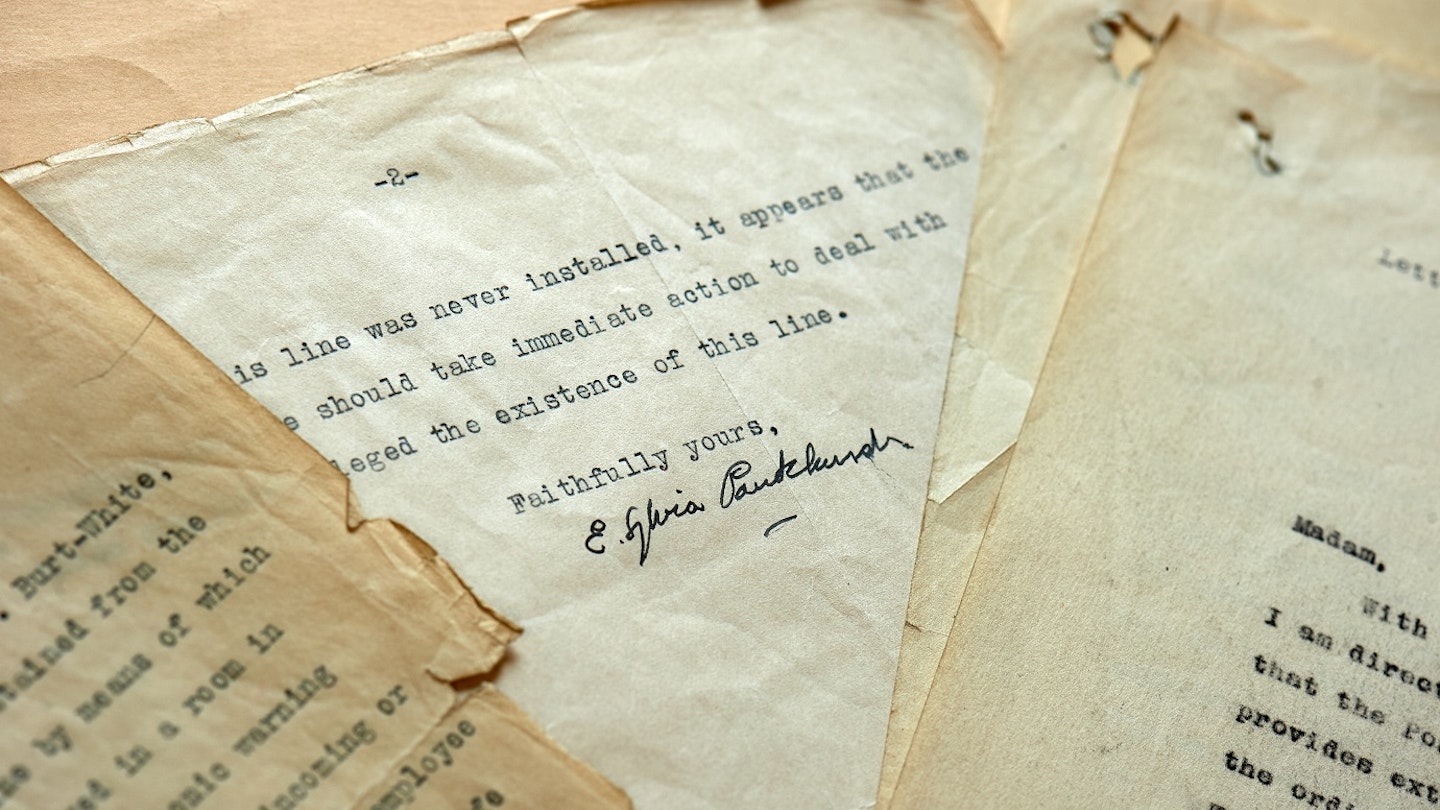You know that eerily terrifying feeling that you’re being watched when an advert pops up on social media relating to something you casually mentioned to your mum over dinner one evening? Well, it turns out we’re not the first generation to be concerned our technology is being used for dodgy monitoring, not by a long-shot.
Sylvia Pankhurst, socialist suffragette and human rights campaigner, lobbied the British government over eavesdropping on phone conversations back in the 1930’s. Letters of hers, written to the postmaster general, MP Kingsley Wood, at the House of Commons, have been unearthed by an academic working at the BT Archives in the old Holborn telephone exchange that show her expressing concern over ‘improper use’ of phone lines.
According to Sarah Jackson, the academic who found the letters when researching her upcoming book about literature and telephony, Pankhurst wrote the letter after finding out that a solicitor had set up a duplicate phone line so he could listen and record his wife’s conversations with her lover.
‘They referred to a rather seedy case in which a Harley Street gynaecologist was struck off for having an affair with a patient,’ Jackson explained, ‘The patient’s husband, a solicitor, had found out and persuaded the Post Office, which was then in charge of the telephone system, to install an extra line.’
When the extra line rang, a bell would sound and alert a secretary in a nearby house. The secretary would then listen into the call and note the conversation in shorthand, with one man apparently telling the solicitors wife ‘I will ring you later, my beautiful.’
Alarmed to find out the solicitor was able to do this, Pankhurst wrote to Wood, saying ‘the installation of a line so arranged obviously opens the door to improper use by unscrupulous persons and the question arises as to whether the Post Office ever in fact installed a line under such extraordinary conditions.
‘I desire to ask whether such a line was ever installed, ‘she continued, ‘and if so, whether the installation was effected with your knowledge and whether you proposed to allow such lines to be installed in the future for undoubtedly they are opposed to the very best interests of the community and contrary to public policy.’
While an official replied to her first letter stating that it was normal for extra lines to be installed in order to take calls in different rooms, her response – in which she said she had her own extension but the buzzer system used by the solicitor was ‘quite special’ – never received a reply.
‘Her letters are polite and firm. She’s clearly incredibly intelligent and a force to be reckoned with,’ Jackson told The Guardian, ‘Just after finding the letter I came upon the story of the MP [Steve Baker] who keeps his mobile phone in the microwave so he can’t be monitored. It shows that concerns about surveillance have been there for decades and are still very much with us.’
The associate professor at Nottingham Trent University also stated that MI5 had intercepted Pankhurst’s letters in the 1930s and 40s, also monitoring her movements. ‘It’s pure speculation but it’s tempting to think she had an inkling she was being monitored,’ she said.
In fact, MI5 files were released in 2004 that referred to Pankhurst as a ‘horrid old harridan’ in a document from a Foreign Office official, where he also said he hoped she would be ‘choked to death by her own pamphlets’.
Of course, it’s no surprise that a woman who fought for women’s suffrage -despite her estrangement from her mother Emmeline and sister Christabel – was loathed by government officials.
‘Sylvia Pankhurst is generally remembered today simply as a militant suffragette,’ said the AHRC’s director of partnerships and engagement, Professor Roey Sweet, ‘but the exciting discovery of these letters reminds us that her fight for women’s political rights was part of her lifelong commitment to socialist and revolutionary politics, pacifism and internationalism.
